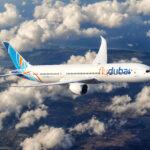This policy explains how Farnborough International Limited of Show Centre, ETPS Road, Farnborough, GU14 6FD (“we” or “us”) uses any personal information which it collects about you when you use our websites.
WHAT INFORMATION DO WE COLLECT ABOUT YOU
Information that you provide by filling in forms on our sites farnborough.com, https://www.farnboroughairshow.com, farnboroughinternational.org and https://www.wearefinn.com (“our site(s)”). This includes information provided at the time of placing an order for our services, subscribing to our service, posting materials or requesting further services. We may also ask you for your personal data when you enter our competition, complete customer surveys, or contact us with any enquiry.
Website usage information including traffic data, location data, weblogs, your domain name and your email address and other communication data is collected using cookies as per the following cookies policy.
HOW DO WE USE YOUR PERSONAL INFORMATION
We process your personal data to process and fulfil your order or deliver the services you signed up for, manage your account, answer enquiries, email you about products and services which may be of interest to you and notify you about changes to our service. We will keep your personal data for a maximum period of 7 years from the time you last contacted us.
We use your personal data collected from our websites usage to track activities on our website and ensure that content from our site is tailored in the most effective manner for you and for your computer. We will keep your website usage data for the time prescribed in our cookies policy.
DISCLOSURE OF YOUR INFORMATION
We may disclose your personal information to third parties as follows:
– to our contractors helping us to deliver our services to you.
– to comply with any legal obligation, or in order to enforce or apply our terms of use and other agreements or to protect our rights, property, or safety of our visitors, our customers, or others. This includes exchanging information with other companies and organisations for the purposes of fraud protection and credit risk reduction.
– We do not process your data outside of the European Union.
YOUR RIGHTS
You have the right to ask us not to process your personal data for marketing purposes. If you no longer wish to be contacted for marketing purposes, please email us at optout@farnborough.com.
You have the right to request a copy of the information that we hold about you. If you wish to do so, please email us at mydata@farnborough.com.
You may ask us to correct or remove information which you think is inaccurate. To request a removal or correction of your personal information, please email us at mydata@farnborough.com.
You have the right to lodge a complaint about our processing of your personal information with the Information Commissioner’s Office.
CHANGES TO OUR PRIVACY POLICY
Any changes we may make to our Privacy Policy in the future will be posted on this page and, where appropriate, notified to you by email. This Privacy Policy was last updated on 1 May 2018.
OTHER WEBSITES
Our site may contain links to and from the websites of our partner networks, advertisers and affiliates. If you follow a link to any of these websites, please note that these websites have their own privacy policies and that we do not accept any responsibility or liability for these policies. Please check these policies before you submit any personal data to these websites.
CONTACT
Questions, comments and requests regarding this privacy policy are welcomed and should be addressed to [email protected] or send per post to our address Farnborough International Limited of Show Centre, ETPS Road, Farnborough, GU14 6FD

